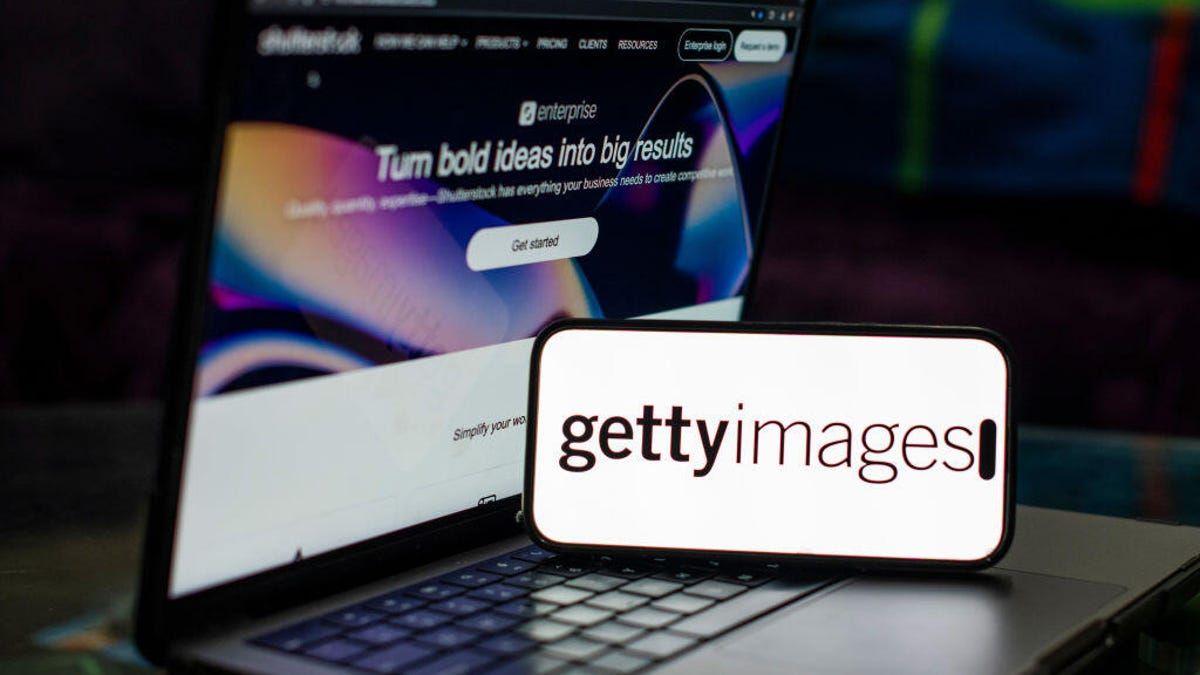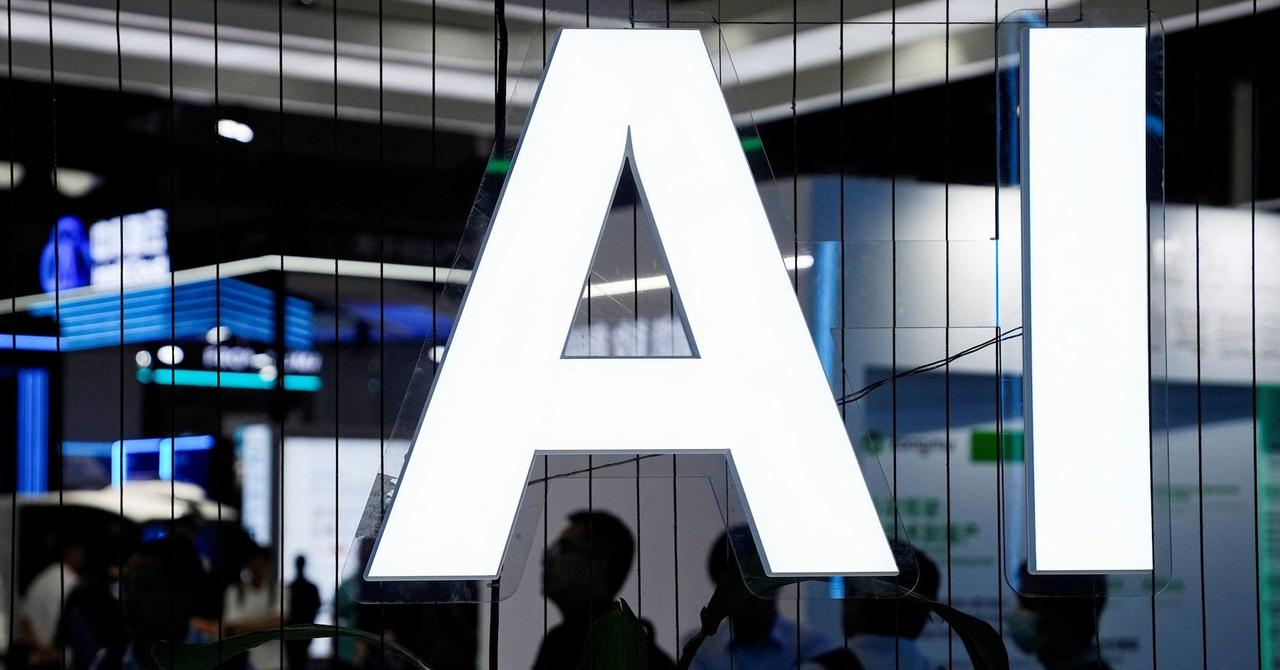Getty Images Drops Key Copyright Claims Against Stability AI in Landmark UK Lawsuit
6 Sources
6 Sources
[1]
Getty drops key copyright claims against Stability AI, but UK lawsuit continues | TechCrunch
Getty Images dropped its primary claims of copyright infringement against Stability AI on Wednesday at London's High Court, narrowing one of the most closely watched legal fights over how AI companies use copyrighted content to train their models. The move doesn't end the case entirely - Getty is still pursuing other claims as well as a separate lawsuit in the U.S. - but it underscores the gray areas surrounding the future of content ownership and usage in the age of generative AI. The development also comes just a day after a U.S. judge sided with Anthropic in a similar dispute over whether training AI on books without author permission violates copyright law. Getty sued Stability AI -- the startup behind AI image generator Stable Diffusion -- in January 2023 after alleging that Stability used millions of copyrighted images to train its AI model without permission. The image database company also claimed that many of the works generated by Stable Diffusion were similar to the copyrighted content used to train it. Some, Getty said, even had its watermarks on them. Both of those claims were dropped as of Wednesday morning. "The training claim has likely been dropped due to Getty failing to establish a sufficient connection between the infringing acts and the UK jurisdiction for copyright law to bite," Ben Maling, a partner at law firm EIP, told TechCrunch in an email. "Meanwhile, the output claim has likely been dropped due to Getty failing to establish that what the models reproduced reflects a substantial part of what was created in the images (e.g. by a photographer)." In Getty's closing arguments, the company's lawyers said they dropped those claims due to weak evidence and a lack of knowledgeable witnesses from Stability AI. The company framed the move as strategic, allowing both it and the court to focus on what Getty believes are stronger and more winnable allegations. What remains in Getty's lawsuit are a secondary infringement claim as well as claims for trademark infringement. Regarding the secondary infringement claim, Getty is essentially arguing that the AI models themselves might infringe copyright law, and that using these models in the UK could constitute importing infringing articles, even if the training happened outside the UK. "Secondary infringement is the one with widest relevance to genAI companies training outside of the UK, namely via the models themselves potentially being 'infringing articles' that are subsequently imported into the UK," Maling said. A spokesperson for Stability AI told TechCrunch the startup was "pleased to see Getty's decision to drop multiple claims after the conclusion of the testimony." The spokesperson also noted that Stability was confident that Getty's trademark and passing off claims will fail because consumers don't interpret the watermarks as a commercial message from Stability AI. Getty's U.S. division also sued Stability AI in February 2023 for trademark and copyright infringement. In that case, Getty alleged that Stability used as many as 12 million copyrighted images to train its AI model without permission. The company is seeking damages for 11,383 works at $150,000 per infringement, which would amount to a total of $1.7 billion. Separately, Stability AI is also named in another complaint alongside Midjourney and DeviantArt after a group of visual artists sued the three companies for copyright infringement. Getty Images has its own generative AI offering that leverages AI models trained on Getty iStock stock photography and video libraries. The tool allows users to generate new licensable images and artwork.
[2]
Getty drops copyright allegations in UK lawsuit against Stability AI
LONDON (AP) -- Getty Images dropped copyright infringement allegations from its lawsuit against artificial intelligence company Stability AI as closing arguments began Wednesday in the landmark case at Britain's High Court. Seattle-based Getty's decision to abandon the copyright claim removes a key part of its lawsuit against Stability AI, which owns a popular AI image-making tool called Stable Diffusion. The two have been facing off in a widely watched court case that could have implications for the creative and technology industries. Tech companies have been training their AI systems on vast troves of writings or images available online, citing "fair use" or "fair dealing" legal doctrines in the United States and United Kingdom. Getty was among the first to challenge those practices with copyright infringement lawsuits in the United States and the United Kingdom in early 2023. In its lawsuit, Getty alleged that Stability's use of its images infringed its intellectual property rights, including copyright, trademark and database rights. However, Getty's move indicates that the company didn't think its copyright allegations would succeed. After witness and expert testimony, Getty made the "pragmatic decision to pursue only the claims for trade mark infringement, passing off and secondary infringement of copyright," according to a written copy of its closing arguments. Getty continues to accuse Stability of infringing its trademark because its AI model was trained on images that included Getty's watermarks, which were sometimes reproduced by the image generator. Getty also alleges that Stability indirectly infringed its copyright because even if Stability's AI models were trained outside of Britain, it still faces local laws if the models produced images in the country. But Stability has argued that because training of the AI model technically happened elsewhere, on computers run by U.S. tech giant Amazon, the case doesn't belong in the United Kingdom. London-based Stability said welcomed Getty's move. "We are pleased to see Getty's decision to drop multiple claims after the conclusion of testimony," the company said in a statement. "We are grateful for the time and effort the UK court has put forth to address the important matters in this case. We look forward to the court's final judgment." Closing arguments are expected to last until the end of the week. A written decision from the judge expected at a later date.
[3]
Getty Images Drops Main Copyright Claims Against Stability AI in UK Legal Case
Getty Images has dropped its primary copyright infringement claims against AI image company Stability AI in a high-profile legal battle at London's High Court. The decision, made as closing arguments began this week, removes the allegation that Stability unlawfully used Getty's copyrighted photographs to train its image-generating AI model, Stable Diffusion. Getty is still pursuing other claims in the case, including trademark infringement, "passing off," and secondary copyright infringement. "It was always anticipated to be challenging to prove that connection to the U.K. because we know that most of the training happened in the U.S.," AI legal expert Alex Shandro, who observed the trial for law firm A&O Shearman, tells AP. Getty's legal team confirmed in closing arguments that it had made a "pragmatic decision" to drop the training-related copyright claims and focus on areas they believe are more likely to succeed. The withdrawn claims centered on Getty's assertion that Stability trained Stable Diffusion using millions of copyrighted images without authorization, including some that contained Getty's distinct watermark. However, legal experts say the company likely struggled to establish that any alleged infringement occurred under U.K. jurisdiction. "The training claim has likely been dropped due to Getty failing to establish a sufficient connection between the infringing acts and the U.K. jurisdiction for copyright law to bite," Ben Maling, a partner at law firm EIP, tells Tech Crunch. "Meanwhile, the output claim has likely been dropped due to Getty failing to establish that what the models reproduced reflects a substantial part of what was created in the images. (e.g. by a photographer)." A spokesperson for Stability AI welcomed the development. "We are pleased to see Getty's decision to drop multiple claims after the conclusion of testimony," the company says. "We are grateful for the time and effort the U.K. court has put forth to address the important matters in this case. We look forward to the court's final judgment." The remaining claims could still have significant implications for generative AI companies operating across borders. Getty alleges that even if the AI training occurred outside the U.K., using the models in Britain could amount to importing infringing articles -- a potential case of secondary copyright infringement. Getty also continues to press its trademark claims, arguing that Stability's AI model reproduced Getty's watermark on some images, which could mislead consumers. Stability has rejected that argument, asserting that consumers do not view the watermark as a commercial message from the AI company. The case in London follows a separate but related lawsuit Getty filed in the United States in early 2023. That case includes similar allegations of unauthorized use of over 12 million images and seeks $1.7 billion in damages. Getty says its U.K. litigation strategy does not affect the U.S. case, which is still awaiting a ruling on a motion to dismiss. The developments in both jurisdictions come amid growing legal scrutiny of AI companies. Just this week, a U.S. judge dismissed a key part of a lawsuit against AI company Anthropic, ruling that AI developers can train AI models on copyrighted content without obtaining permission from the content creators. A final decision in the U.K. case is expected in the coming months.
[4]
Getty drops primary claims against Stable Diffusion in AI lawsuit after 'failing to establish a sufficient connection between the infringing acts and the UK jurisdiction for copyright law to bite'
They still have the seocondary infringements against the AI model itself to take to court. The burgeoning world of AI tech is currently the centre of controversy and confusion around the world. On the one hand we have wonderful uses for AI like making our PC gaming even better, or hunting down bugs, and on the other we have... well... all the other stuff. AI art is particularly contentious as it's trained off the hard work of others without their consent or compensation which is why it's no surprise we're seeing interesting twists and turns in lawsuits like what's happening with image database company Getty's claims against Stability AI. Getty Images began legal proceedings in the UK against Stable Diffusion, Stability AI's art tool back in January 2023. It claimed that Stability AI was trained on millions of copyrighted images to deliver its results Getty stated that the AI's images were incredibly similar to copyrighted pictures, including stating that some of the generated images even had watermarks still attached. It's worth noting this isn't Getty Images fighting the human fight against AI for the efforts of its photographers, though it's long been worried about the legal implications of AI. Getty has its own AI powered image generator that is trained on its library of images and video, so it has no interest in going against AI as a concept. Merely in protecting what it believes are its assets and in turn, profits. As one of the more prominent cases of its kind, it has been a closely watched case by all who're interested in seeing what precedents this sets for the use of AI in the future. According to TechCrunch this all took a new turn at London's High Court on Wednesday when Getty Images dropped its primary claims of copyright infringement for the case. In closing arguments Getty's lawyers said the claims were dropped as a strategic move to focus on stronger aspects of the case. Stating that for these claims the evidence was weak and knowledgeable witnesses from Stability AI were hard to come by. It's incredibly common for lawyers to drop claims they don't believe can be substantiated in court in favour of not weakening the other arguments by tying them to unprovable positions. A bit like what happened in the Meta AI case. "The training claim has likely been dropped due to Getty failing to establish a sufficient connection between the infringing acts and the UK jurisdiction for copyright law to bite," Ben Maling, a partner at law firm EIP, told TechCrunch. "Meanwhile, the output claim has likely been dropped due to Getty failing to establish that what the models reproduced reflects a substantial part of what was created in the images (e.g. by a photographer)." This isn't the end of Getty's lawsuit against Stability AI as the company has other claims, but it does appear to take a fair few of the teeth out of the argument. It also seems to highlight the uncertainty around AI's place and what is legal when it comes to the use and training of these bots. In a field so new experts are often harder to come by that aren't actively working for companies providing these solutions. Instead, Getty is focussing on the secondary infringement claim as well as going after trademark infringement for the lawsuit. This goes after the AI models themselves, inferring that they could breach UK law. "Secondary infringement is the one with widest relevance to genAI companies training outside of the UK, namely via the models themselves potentially being 'infringing articles' that are subsequently imported into the UK," Maling said. These changes won't affect the concurrent case Getty's U.S. wing has against Stability AI for trademark and copyright infringement. It was also started early in 2023 and sings a similar tune to the UK lawsuit, which is seeking a total $1.7 billion in damages after claiming Stability AI used up to 12 million copyrighted images to train its model. While everyone holds their breath for these kinds of lawsuits to finish and establish president, it feels like we might be a fair while off. Most cases levelled against AI seem to struggle with finding arguements that work within the current laws. Whether we need better laws to help deal with AI or just better arguements remains to be seen, alongside what further implications these will have to other aspects of AI tech beyond just image genration.
[5]
Getty Drops Copyright Allegations in UK Lawsuit Against Stability AI
LONDON (AP) -- Getty Images dropped copyright infringement allegations from its lawsuit against artificial intelligence company Stability AI as closing arguments began Wednesday in the landmark case at Britain's High Court. Seattle-based Getty's decision to abandon the copyright claim removes a key part of its lawsuit against Stability AI, which owns a popular AI image-making tool called Stable Diffusion. The two have been facing off in a widely watched court case that could have implications for the creative and technology industries. Tech companies have been training their AI systems on vast troves of writings or images available online, citing "fair use" or "fair dealing" legal doctrines in the United States and United Kingdom. Getty was among the first to challenge those practices with copyright infringement lawsuits in the United States and the United Kingdom in early 2023. In its lawsuit, Getty alleged that Stability's use of its images infringed its intellectual property rights, including copyright, trademark and database rights. However, Getty's move indicates that the company didn't think its copyright allegations would succeed. After witness and expert testimony, Getty made the "pragmatic decision to pursue only the claims for trade mark infringement, passing off and secondary infringement of copyright," according to a written copy of its closing arguments. Getty continues to accuse Stability of infringing its trademark because its AI model was trained on images that included Getty's watermarks, which were sometimes reproduced by the image generator. Getty also alleges that Stability indirectly infringed its copyright because even if Stability's AI models were trained outside of Britain, it still faces local laws if the models produced images in the country. But Stability has argued that because training of the AI model technically happened elsewhere, on computers run by U.S. tech giant Amazon, the case doesn't belong in the United Kingdom. London-based Stability said welcomed Getty's move. "We are pleased to see Getty's decision to drop multiple claims after the conclusion of testimony," the company said in a statement. "We are grateful for the time and effort the UK court has put forth to address the important matters in this case. We look forward to the court's final judgment." Closing arguments are expected to last until the end of the week. A written decision from the judge expected at a later date. Copyright 2025 The Associated Press. All rights reserved. This material may not be published, broadcast, rewritten or redistributed.
[6]
Getty drops copyright allegations in UK lawsuit against Stability AI - The Economic Times
In its lawsuit, Getty alleged that Stability's use of its images infringed its intellectual property rights, including copyright, trademark and database rights.Getty Images dropped copyright infringement allegations from its lawsuit against artificial intelligence company Stability AI as closing arguments began Wednesday in the landmark case at Britain's High Court. Seattle-based Getty's decision to abandon the copyright claim removes a key part of its lawsuit against Stability AI, which owns a popular AI image-making tool called Stable Diffusion. The two have been facing off in a widely watched court case that could have implications for the creative and technology industries. Tech companies have been training their AI systems on vast troves of writings or images available online, citing "fair use" or "fair dealing" legal doctrines in the United States and United Kingdom. Getty was among the first to challenge those practices with copyright infringement lawsuits in the United States and the United Kingdom in early 2023. In its lawsuit, Getty alleged that Stability's use of its images infringed its intellectual property rights, including copyright, trademark and database rights. However, Getty's move indicates that the company didn't think its copyright allegations would succeed. After witness and expert testimony, Getty made the "pragmatic decision to pursue only the claims for trade mark infringement, passing off and secondary infringement of copyright," according to a written copy of its closing arguments. Getty continues to accuse Stability of infringing its trademark because its AI model was trained on images that included Getty's watermarks, which were sometimes reproduced by the image generator. Getty also alleges that Stability indirectly infringed its copyright because even if Stability's AI models were trained outside of Britain, it still faces local laws if the models produced images in the country. But Stability has argued that because training of the AI model technically happened elsewhere, on computers run by U.S. tech giant Amazon, the case doesn't belong in the United Kingdom. London-based Stability said welcomed Getty's move. "We are pleased to see Getty's decision to drop multiple claims after the conclusion of testimony," the company said in a statement. "We are grateful for the time and effort the UK court has put forth to address the important matters in this case. We look forward to the court's final judgment." Closing arguments are expected to last until the end of the week. A written decision from the judge expected at a later date.
Share
Share
Copy Link
Getty Images has withdrawn its primary copyright infringement claims against Stability AI in a high-profile UK legal battle, focusing instead on trademark infringement and secondary copyright claims. The case highlights the complex legal landscape surrounding AI training and image generation.
Getty Images Abandons Key Copyright Claims
In a significant development at London's High Court, Getty Images has dropped its primary copyright infringement allegations against Stability AI, the company behind the popular AI image generator Stable Diffusion. This decision, made as closing arguments began, marks a turning point in one of the most closely watched legal battles over AI companies' use of copyrighted content for model training
1
.
Source: PetaPixel
Getty's lawsuit, filed in January 2023, initially claimed that Stability AI had used millions of copyrighted images without permission to train its AI model. The company also alleged that many works generated by Stable Diffusion were similar to the copyrighted content used in training, with some even bearing Getty's watermarks
1
.Reasons Behind the Strategic Move
Getty's legal team framed the decision to drop these claims as strategic, allowing both the company and the court to focus on what Getty believes are stronger and more winnable allegations
1
. Legal experts suggest that Getty likely struggled to establish a sufficient connection between the alleged infringing acts and UK jurisdiction for copyright law to apply3
.Ben Maling, a partner at law firm EIP, explained, "The training claim has likely been dropped due to Getty failing to establish a sufficient connection between the infringing acts and the UK jurisdiction for copyright law to bite"
1
.Remaining Claims and Their Implications
Despite dropping the primary copyright claims, Getty is still pursuing other allegations:
-
Secondary infringement: Getty argues that the AI models themselves might infringe copyright law, and using these models in the UK could constitute importing infringing articles, even if the training happened outside the UK
1
. -
Trademark infringement: Getty continues to accuse Stability of infringing its trademark, claiming that the AI model was trained on images including Getty's watermarks, which were sometimes reproduced by the image generator
2
. -
"Passing off": This claim relates to the potential confusion caused by the reproduction of Getty's watermarks in AI-generated images
2
.

Source: TechCrunch
Related Stories
Stability AI's Response and Ongoing Legal Battles
Stability AI welcomed Getty's decision to drop multiple claims. A spokesperson for the company stated, "We are pleased to see Getty's decision to drop multiple claims after the conclusion of testimony. We are grateful for the time and effort the UK court has put forth to address the important matters in this case"
2
.It's important to note that this development only affects the UK lawsuit. Getty's US division is still pursuing a separate case against Stability AI, filed in February 2023, seeking damages of $1.7 billion for alleged infringement of 11,383 works
1
.Broader Implications for AI and Copyright
This case highlights the complex legal landscape surrounding AI training and image generation. As AI companies continue to train their systems on vast amounts of online content, citing "fair use" or "fair dealing" doctrines, the outcome of this and similar cases could have far-reaching implications for both the technology and creative industries
2
.The judge's written decision, expected at a later date, will be closely watched by stakeholders in the AI and creative sectors, potentially setting precedents for future disputes over AI training and copyright infringement
5
.References
Summarized by
Navi
[1]
Related Stories
UK Court Delivers Mixed Verdict in Getty vs. Stability AI Copyright Case, Leaving Key Questions Unanswered
04 Nov 2025•Policy and Regulation

Getty Images and Stability AI Face Off in Landmark UK Copyright Trial
09 Jun 2025•Policy and Regulation

Getty vs Stability AI Ruling Leaves AI Copyright Law in Legal Limbo
12 Nov 2025•Policy and Regulation

Recent Highlights
1
ByteDance Faces Hollywood Backlash After Seedance 2.0 Creates Unauthorized Celebrity Deepfakes
Technology

2
Microsoft AI chief predicts artificial intelligence will automate most white-collar jobs in 18 months
Business and Economy

3
Google reports state-sponsored hackers exploit Gemini AI across all stages of cyberattacks
Technology





